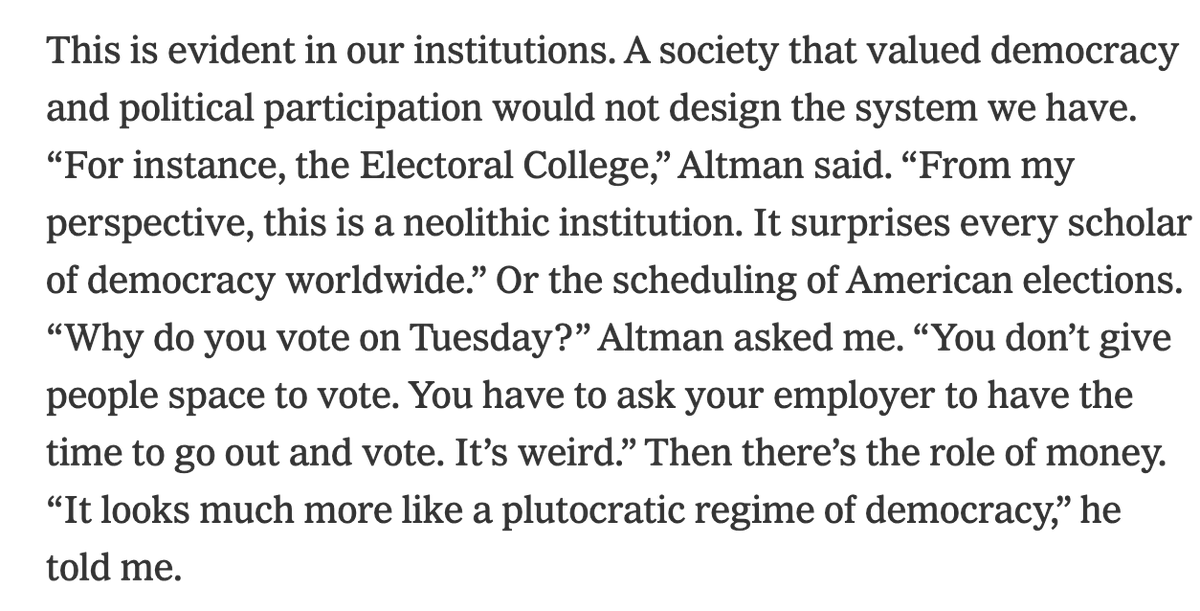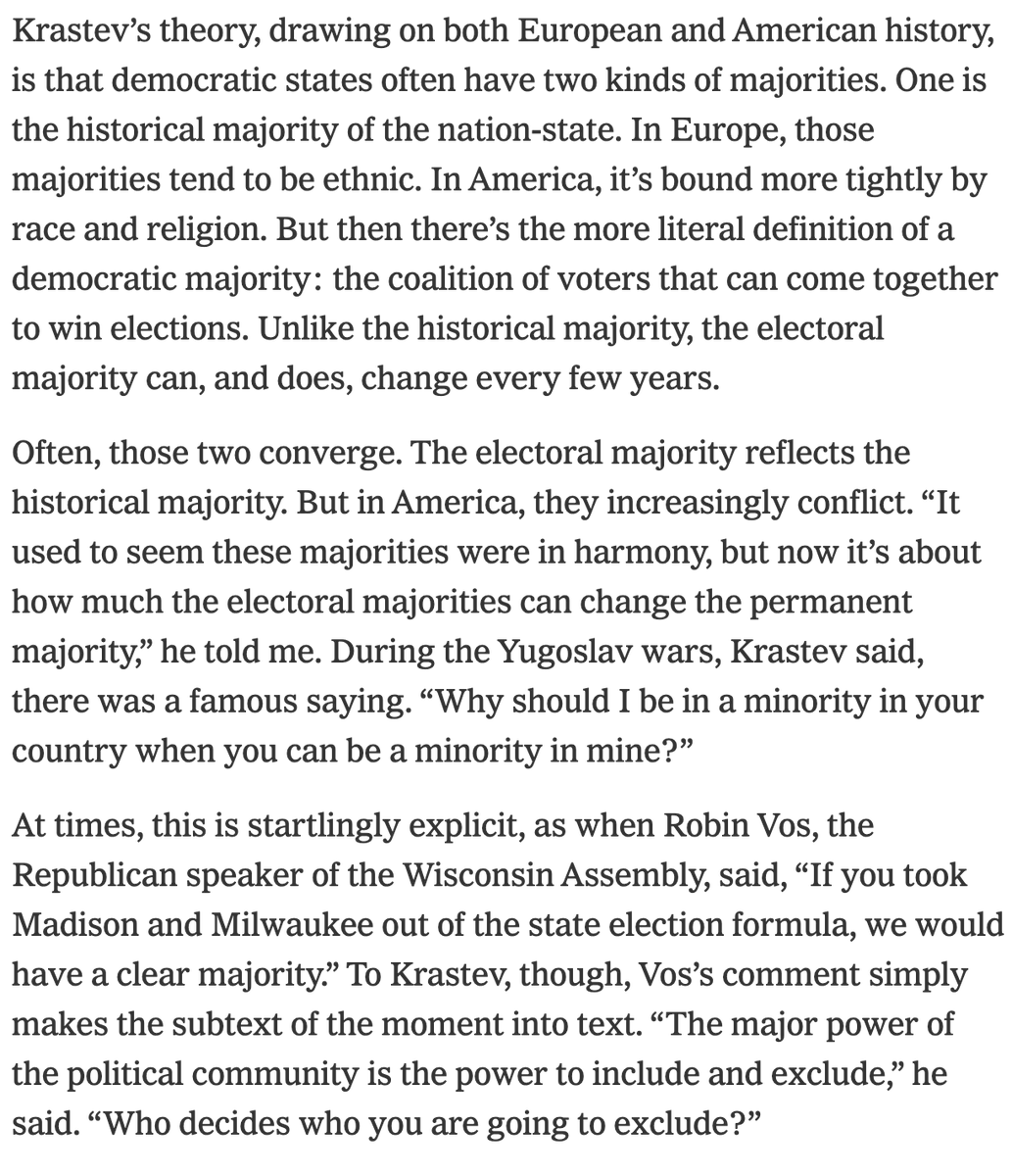
This is worth reading, as it illustrates a peculiar pathology in modern conservatism: The idea that the US government is too incompetent to execute domestic policy well, but it has extraordinary control over outcomes in countries it invades.
https://twitter.com/charlescwcooke/status/1430906504379396121
Cooke's argument — again, read it for yourself — is that because I believed Elizabeth Warren could have mounted a stronger domestic response to COVID, I'm a hypocrite for saying events in Afghanistan had spun beyond our control, and a reckoning with our overreach is overdue.
But you see this all the time. The same people who say the US government would make a mess out of a national healthcare system will tell you we can invade Iran, Iraq, Syria, etc, and remake their societies.
There are places where Cooke and I probably don't disagree: He identifies the visa process in the withdrawal as a mess, and in my column, I call it "unforgivable." Better is always possible.
But, and this is key, so is worse.
Perhaps this will sound "pseudo-scientific" to Cooke, but policymaking is probabilistic, and any alternative you try has some chance of going wrong in different, and perhaps worse, ways.

Perhaps this will sound "pseudo-scientific" to Cooke, but policymaking is probabilistic, and any alternative you try has some chance of going wrong in different, and perhaps worse, ways.


The illusion that we could control events in Afghanistan has been at the base of failure after failure. The refusal to admit that is remarkable.
Given the incredible record of failed American predictions and policymaking about Afghanistan, maybe a bit of humility is in order?
Given the incredible record of failed American predictions and policymaking about Afghanistan, maybe a bit of humility is in order?
Cooke writes, "COVID-19, by contrast, was — and is — a far, far more difficult challenge."
That's wild. I think we could have matched Canada or Germany or South Korea's performance over the first 6 months.
I don't think Canada, Germany or SK could have remade Afghanistan.
That's wild. I think we could have matched Canada or Germany or South Korea's performance over the first 6 months.
I don't think Canada, Germany or SK could have remade Afghanistan.
But this is a way the left-right split in this country is not what it seems.
The right doesn't doubt the US government's ability to do extraordinary, seemingly impossible, things. It just doubts its ability to do those things here at home.
The right doesn't doubt the US government's ability to do extraordinary, seemingly impossible, things. It just doubts its ability to do those things here at home.
Full column here: nytimes.com/2021/08/26/opi…
• • •
Missing some Tweet in this thread? You can try to
force a refresh














